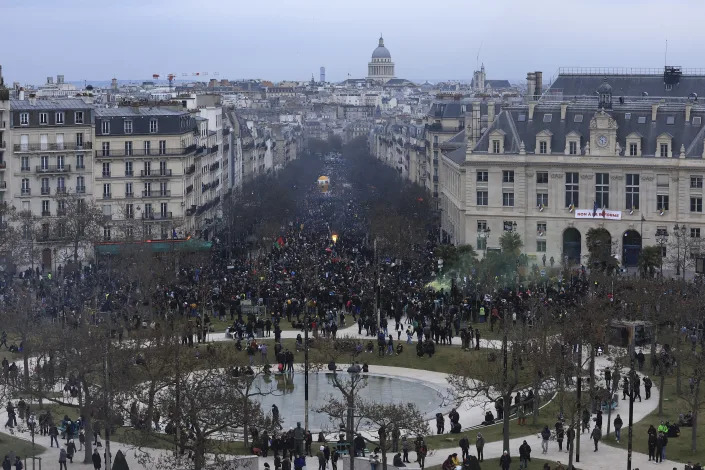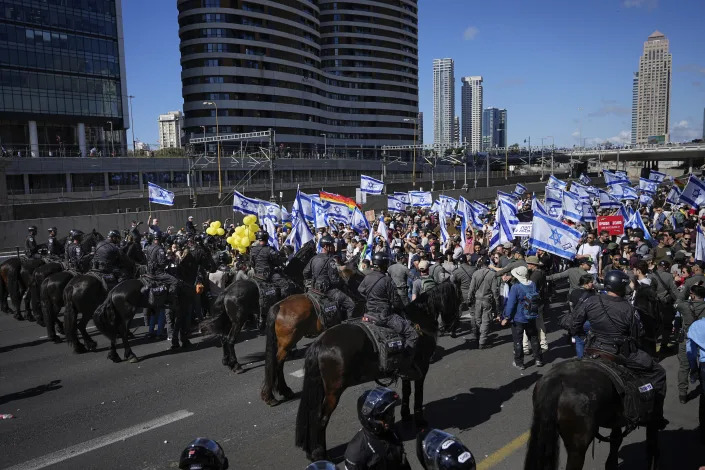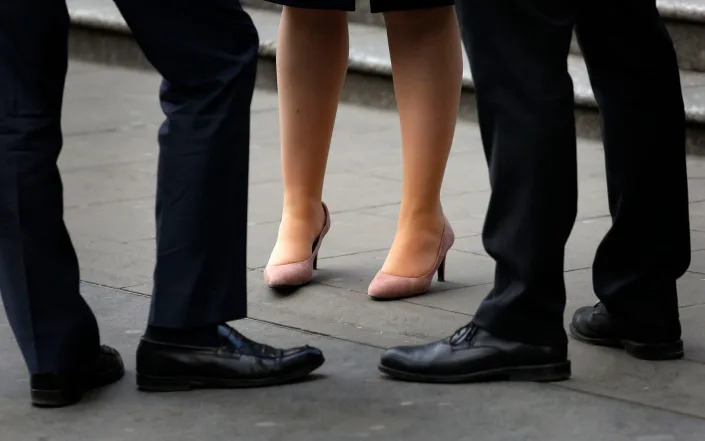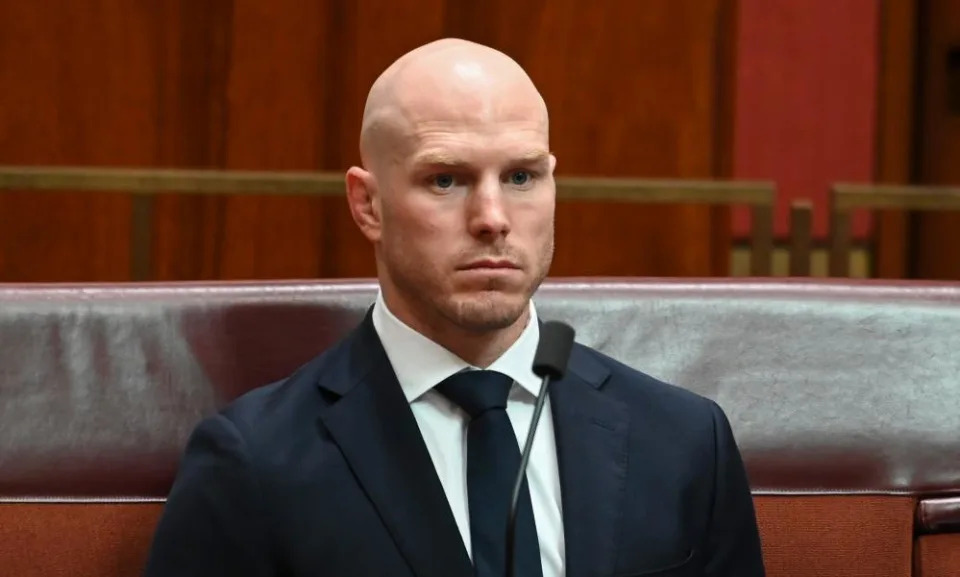DOMINION IS A CANADIAN COMPANY
Dominion: Fox News needs to 'retract the lies and tell its audience the truth'Dareh Gregorian and Jane C. Timm
Wed, March 8, 2023
Fox News has acknowledged in court that its on-air claims that Dominion Voting Services "rigged" the 2020 election were false — but it still hasn't acknowledged that to its audience, the voting machine company charged in a court filing Wednesday.
After giving a platform to allies of former President Donald Trump falsely claiming Dominion "flipped" millions of votes to Joe Biden, the network "still refuses to level with its audience," lawyers for Dominion said in papers filed in Delaware Superior Court.
Dominion said that Fox has acknowledged in their own court filings and through testimony that there was no evidence to back the bogus claims of a number of Fox hosts and guests such as Sidney Powell, Rudy Giuliani and Mike Lindell.
"Despite having conceded it was all a lie, and despite internal documents proving they knew it was a lie all along, Fox still will not retract the lies and tell its audience the truth," the company argued, pointing a finger at Murdoch.

Rupert Murdoch in Sydney (Brendon Thorne / Bloomberg via Getty Images file )
"What is Rupert Murdoch’s rationale for not retracting? Not that the truth is still in doubt. He admitted he 'never believed' that Dominion rigged the election. And he 'could have' stopped the defamatory statements from airing at the time “[b]ut I didn’t.' Yet he believes it is 'too late' to retract and refuses to apologize," the filing said.
It also noted that some skeptical hosts "stopped airing the allegations because they knew they would have to 'tell the truth' if they did so," and pointed to host Laura Ingraham.
The filing said she'd admitted at her deposition that by Nov. 12, she “'made the decision not to air the false allegations of Dominion.' (Of course, she did not tell her audience then the allegations were false—and still has not.)"
The filings came one day after the release of hundreds of pages of testimony, private text messages and emails from top Fox News journalists and executives that showed a network in crisis after it angered core viewers by reporting accurately on the results of the 2020 presidential election.
The documents have often showed that behind the scenes, Fox executives and hosts understood that what was on air was not in line with the truth:
In his sworn deposition in January, Fox Corp. Chairman Rupert Murdoch repeatedly said, "No" when asked, "[D]o you believe that today Fox should be telling people that Dominion committed election fraud by rigging the 2020 presidential election?" and "Do you think that today Fox should be telling people that Dominion's software and algorithms manipulated vote counts in the 2020 presidential election?" and other similar questions.
"That whole narrative that Sidney was pushing," host Sean Hannity said in his August 2022 deposition, "I did not believe it for one second."
"Sidney Powell is lying," host Tucker Carlson sent in a text message on Nov. 17, 2020, referring to the conservative lawyer who spread the Dominion claims.
“This stuff is so f------ insane. Vote rigging to the tune of millions? C’mon,” Fox Corporation executive Raj Shah said Nov. 20, 2020, urging a producer for Carlson's show to not spend too much time on the issue. (The producer, Alex Pfeifer, responded: "It is so insane but our viewers believe it so addressing again how her stupid venezuela affidavit isn't proof might insult them.")
Murdoch acknowledged in his January deposition that some hosts, including Hannity, Lou Dobbs and Maria Bartiromo, had done more than just give a platform to the baseless claims of voter fraud. “Yes,” Murdoch said, according to another Dominion filing. “They endorsed.”
The documents were part of a trove of evidence collected by Dominion as part of its $1.6 billion lawsuit against Fox News. The voting machine company sued Fox for defamation in March 2021, alleging it caused “severe damage” by giving oxygen to conspiracy theories it knew were false, including that Dominion equipment was used to rig the 2020 election for Biden, that it was tied to the late Venezuelan President Hugo Chávez and that it bribed U.S. government officials.
The voting system manufacturer also stressed the volume of communications it uncovered alerting Fox News and its executives to the false claims.
“It is not normal that executives receive constant communications from a defamation plaintiff during the course of the defamation, flagging the truth and begging the network to stop airing lies on the programs those executives oversee. It is not normal for an executive in the chain of command to receive so many such correspondences that he jokes he has them “tattooed on [his] body,” Dominion's lawyers wrote.
Fox’s reporting on Dominion and other election conspiracy theories came as the network was losing Trump-supporting viewers who were angry with the network for being the first to call Biden’s win in Arizona, a crucial swing state in the election.
Fox has denied wrongdoing and said it's "proud" of its election coverage — a statement the Dominion lawyers focus on in the filing, saying it sends the "unmistakable message that Fox stands by the lies."
In a statement, Fox accused Dominion of trying to "silence the press" and called the company's lawsuit "nothing more than another flagrant attack on the First Amendment."
"FOX News will continue to fiercely protect the free press as a ruling in favor of Dominion would have grave consequences for journalism across this country," its statement read.
Dominion said in the court filing that "Fox is trying to conflate telling the truth with knowingly spreading a lie. News outlets across the political spectrum — including Rupert Murdoch’s own Wall Street Journal and New York Post — reported on the lies being told about Dominion, back in the immediate aftermath of the 2020 election.
"But most of these media organizations reported the truth: that these lies were false," the filing added. "You cannot sue someone for reporting the truth. Fox, in stark contrast, in the accused broadcasts and social media posts at issue here, did not report the truth. Fox spread the lies."
This article was originally published on NBCNews.com

























